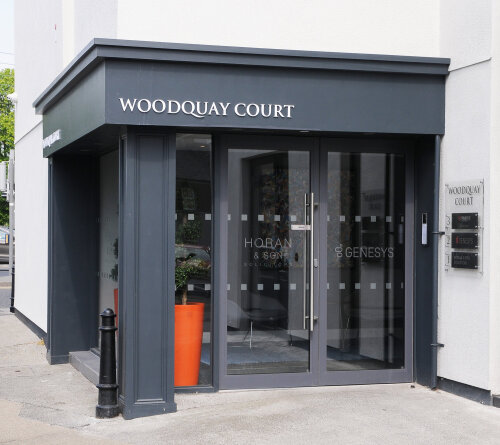Best Public-Private Partnerships (PPP) Lawyers in Galway
Share your needs with us, get contacted by law firms.
Free. Takes 2 min.
List of the best lawyers in Galway, Ireland
About Public-Private Partnerships (PPP) Law in Galway, Ireland
Public-Private Partnerships, commonly referred to as PPP, involve collaborative agreements between government agencies and private sector entities to finance, build, and operate projects such as infrastructure, transport, and public services. In Galway, as throughout Ireland, PPP initiatives have played a vital role in delivering public infrastructure including roads, schools, and healthcare facilities. The legal framework around PPP is designed to align the interests of both the public and private sectors, ensuring that projects are effectively managed, risks are shared, and value for money is achieved for the taxpayer.
Why You May Need a Lawyer
Engaging in a PPP project can be complex and legally challenging, especially for individuals or businesses unfamiliar with Irish law. Common situations where legal help is essential include contract negotiation, risk allocation, regulatory compliance, dispute resolution, and managing public procurement processes. Whether you are a public authority, a private contractor, an investor, or a consultant involved in a PPP in Galway, legal advice can help you understand your rights and responsibilities, avoid costly pitfalls, and protect your interests throughout the project lifecycle.
Local Laws Overview
PPP arrangements in Galway are governed by a mix of national and EU laws, with local considerations often arising in terms of planning, procurement, and environmental compliance. Key legal aspects include:
- EU Procurement Regulations: Public contracts must comply with EU procurement rules to ensure fairness and transparency in the selection of private partners.
- Irish PPP Policy Framework: The Irish government has issued guidelines that outline the principles and processes for PPP projects, including value for money assessments and standardized contracts.
- Contract Law: Detailed contracts govern the relationship between the parties, spelling out performance standards, payment mechanisms, and dispute resolution processes.
- Planning and Environmental Law: Local planning requirements and environmental regulations in Galway must be adhered to for project approvals.
- Project Finance and Risk Allocation: Agreements often detail funding responsibilities and mechanisms for allocating risks such as construction delays, demand fluctuations, or force majeure events.
It is crucial for all parties to understand how these legal frameworks interact and apply specifically at the Galway level.
Frequently Asked Questions
What is a Public-Private Partnership (PPP)?
A PPP is a cooperative agreement where a government body partners with private sector companies to finance, develop, and operate public assets or services.
Who can participate in a PPP?
Both public authorities (such as Galway City Council) and private entities (such as construction firms, banks, or service providers) can be parties to a PPP.
What types of projects in Galway use PPPs?
Common PPP projects in Galway include roads, schools, hospitals, water facilities, and waste management systems.
How are PPP contracts awarded?
Contracts are awarded through a competitive public procurement process that complies with Irish and EU law to ensure transparency and fair competition.
What risks are involved in PPP projects?
Risks include construction delays, cost overruns, regulatory changes, environmental issues, and demand uncertainty. Contracts typically specify how these are shared.
Are PPP projects subject to local Galway laws?
Yes, PPP projects must comply with Galway's planning and environmental regulations as well as Irish and EU standards.
How are disputes in PPP projects handled?
Disputes are usually resolved through negotiation, mediation, arbitration, or litigation, as specified in the contract.
Is community consultation required for PPP projects?
Major projects often require public consultation as part of the planning and environmental approval process.
Can international firms participate in Galway PPPs?
Yes, EU and international firms can bid for PPP projects, provided they meet the procurement requirements.
How can a lawyer help with a PPP in Galway?
A lawyer can assist with contract drafting and negotiation, navigating procurement rules, ensuring regulatory compliance, and resolving any disputes that may arise.
Additional Resources
For further information and support regarding PPPs in Galway, the following resources may be helpful:
- Galway City Council and Galway County Council - Information on local PPP initiatives and requirements.
- National Development Finance Agency (NDFA) - Provides expertise and advice on project finance and procurement for PPP projects across Ireland.
- Department of Public Expenditure, National Development Plan Delivery and Reform - Publishes guidelines and policies on PPPs on a national level.
- Office of Government Procurement - Guidance on public procurement policies and best practices.
- Law Society of Ireland - Offers resources and directories to find qualified legal professionals experienced in PPP law.
Next Steps
If you are considering becoming involved in a PPP project in Galway or need advice on an existing partnership, your first step should be to consult with a qualified solicitor experienced in PPP law. Gather all relevant documents and clearly outline your objectives and concerns. A lawyer can assess your situation, explain your legal options, and guide you through every stage of the process, from procurement and contracting to project delivery and dispute resolution. Ensure timely legal advice to protect your interests and contribute to the success of your PPP initiative in Galway.
Lawzana helps you find the best lawyers and law firms in Galway through a curated and pre-screened list of qualified legal professionals. Our platform offers rankings and detailed profiles of attorneys and law firms, allowing you to compare based on practice areas, including Public-Private Partnerships (PPP), experience, and client feedback.
Each profile includes a description of the firm's areas of practice, client reviews, team members and partners, year of establishment, spoken languages, office locations, contact information, social media presence, and any published articles or resources. Most firms on our platform speak English and are experienced in both local and international legal matters.
Get a quote from top-rated law firms in Galway, Ireland — quickly, securely, and without unnecessary hassle.
Disclaimer:
The information provided on this page is for general informational purposes only and does not constitute legal advice. While we strive to ensure the accuracy and relevance of the content, legal information may change over time, and interpretations of the law can vary. You should always consult with a qualified legal professional for advice specific to your situation.
We disclaim all liability for actions taken or not taken based on the content of this page. If you believe any information is incorrect or outdated, please contact us, and we will review and update it where appropriate.














